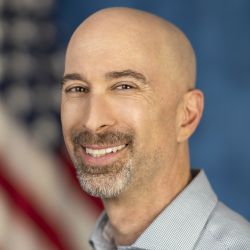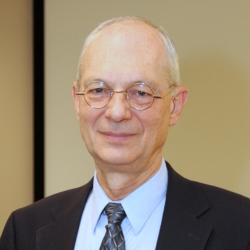Technology Analysis and Strategy

About Us
The U.S. DOT Volpe Center's Technology Analysis and Strategy Division performs the research decision-makers need to develop options, strategies, and tools for the successful deployment of advanced surface transportation system technologies. Our work includes automated vehicle and connected vehicle studies, intelligent transportation systems concept development, wireless spectrum analysis and testing, and traffic and transportation system modeling and evaluation.
Our Division analyzes safety, mobility, security, and asset management implications of advanced technology concepts. Our work supports the safe, cost-effective deployment of emerging and advanced transportation technologies, applications, and systems.
Some highlights of our work include:
Automation
- Monitoring industry activities in driving automation and providing decision-makers with timely, comprehensive insights into the driving automation landscape, helping address critical questions related to industry trends and the state of the technology
Connected Transportation
- Testing and analysis of Intelligent Transportation Systems, including vehicle-to-everything (V2X) technologies
- Representing the transportation community to ensure wireless communications technologies have available radio frequency spectrum for transportation
Emerging Technologies
- Conducting research, analysis and testing to help facilitate the deployment of emerging technologies to improve transportation system safety, efficiency, and effectiveness
- Helping modernize the nation's public transportation systems by studying emerging technologies and early-stage mobility innovation that holds promise to enhance mobility for everyone
Benchmarking
- Providing technical expertise and strategic planning support to enable the U.S. DOT Office of International Transportation and Trade to share best practices in the areas of railway safety, port operations, innovative financing, and multimodal connectivity with global partners
Our team includes technology analysts, engineers, economists, and operations research analysts, who work collaboratively to help transportation leaders make informed decisions.
Our Capabilities
Technology Analysis
- Perform institutional issue and technology deployment analysis
- Identify and compare policy options, including benefits and impacts assessments
- Develop implementation procedures
Systems and Infrastructure Modernization and Optimization
- Assess the role of standards in intelligent transportation systems
- Perform traffic system modeling and simulation
- Evaluate transportation data collection and offer maintenance strategies
- Analyze roadway technology and operations
Safety and Security Assessments
- Assess advanced transportation concepts, including those at early stages of development
- Conduct wireless spectrum impacts and analysis
- Analyze connected vehicle data management systems
- Perform risk assessments
Strategic Planning, Strategy, and Collaboration
- Conduct stakeholder analysis and outreach
- Plan, coordinate, and facilitate technical workshops
- Support international research collaboration
Meet Our Team
View selected staff biographies.
 Josh Hassol, PhD
Josh Hassol, PhD
Chief
Josh Hassol, PhD is the chief of the Technology Analysis and Strategy Division at the U.S. DOT Volpe Center. He has more than 30 years of experience in transportation, with a successful record of accomplishment in transportation analysis, policy development, and consulting. Hassol has led research on advanced vehicle technologies, assessment of potential impacts of truck automation, and identification of new technologies to improve the safety and mobility performance of local roads, in addition to work on econometric vehicle market-share models.
Hassol is a graduate of Wesleyan University (Middletown, CT), was a Fulbright Scholar at the University of British Columbia (Vancouver, BC), and earned his PhD in urban and regional planning, at the University of California at Irvine (Irvine, CA). He is an adjunct professor in the graduate programs at Boston University’s Urban Affairs and City Planning Program. Hassol previously served as a consultant to automobile manufacturers.
 Tom Schaffnit
Tom Schaffnit
Principal Technical Advisor for Transportation Technology Innovation
Tom Schaffnit serves as part of our team of principal technical advisors who work across the Center to identify emerging transportation technologies, conduct analyses and assessments on topics of national significance, and explore new opportunities in response to evolving national concerns.
He serves as a principal technical advisor for transportation technology innovation.
Read Tom Schaffnit's full bio.
 Suzanne Sloan
Suzanne Sloan
Principal Technical Advisor for Transportation Technology Innovation
Suzanne Sloan serves as part of our team of principal technical advisors who work across the Center to identify emerging transportation technologies, conduct analyses and assessments on topics of national significance, and explore new opportunities in response to evolving national concerns.
She serves as a principal technical advisor for transportation technology innovation.
